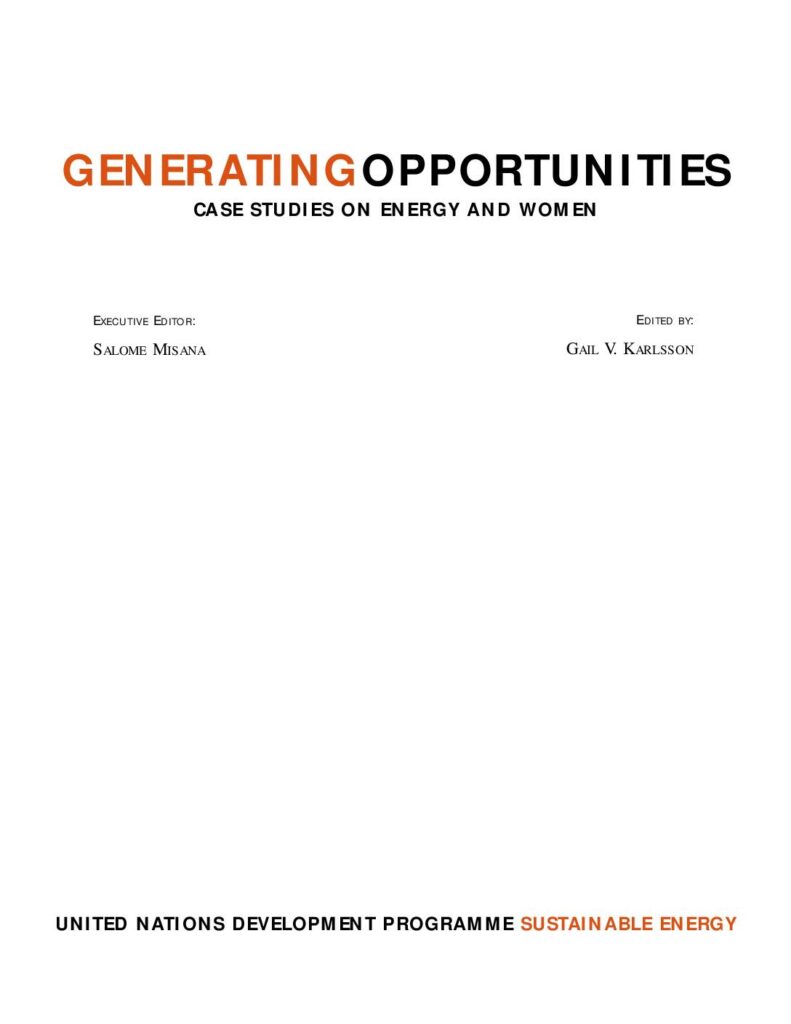This book of case studies was prepared as part of a United Nations Development Programme (UNDP) project entitled “Energy and Women: Generating Opportunities for Development,” which was initiated in February 1999 with support from the Swedish International Development Cooperation Agency (SIDA) and UNDP’s Sustainable Energy Global Programme.
UNDP’s Initiative for Sustainable Energy, which began in 1996, examines energy’s link to socio- economic development and gives guidance on how energy activities can become important instruments for eliminating poverty, regenerating the environment, creating employment opportunities, promoting sustainable livelihoods, and advancing the status of women. This work was reinforced when, as part of the preparations for the 1997 UN General Assembly Special Session to review progress on sustainable development, UNDP published Energy After Rio: Prospects and Challenges. This publication examined the major changes in energy systems called for in Agenda 21, the plan of action adopted at the 1992 Earth Summit, and made recommendations on sustainable energy strategies, including specific energy service approaches to address the burdens faced by women in developing countries.
These themes were further articulated in World Energy Assessment: Energy and the Challenge of Sustainability, a joint publication prepared by UNDP, the UN Department of Economic and Social Affairs, and the World Energy Council, as an input to the 2001 session of the UN Commission on Sustainable Development dealing with energy.
The Energy and Women project looks at new approaches to the use of energy as a means of addressing both poverty alleviation and the advancement of women, two of UNDP’s major priorities. One of the project’s key assumptions is that greater access to modern energy services can provide significant social and economic benefits, especially for women and girls in developing countries, who are the primary providers and users of traditional fuels such as wood, dung and charcoal. Reduced drudgery for women and increased access to nonpolluting power for lighting, cooking, and other household and productive purposes can have dramatic effects on women’s levels of education, literacy, nutrition, health, economic opportunities and involvement in community activities. These improvements in women’s lives can, in turn, have significant beneficial consequences for their families and communities.
This publication looks at critical policy and programme design options to improve women’s access to modern energy services based on the lessons learned in the eight case studies presented. To understand which issues must be addressed in effective policymaking at the national and local level, such concrete experiences provide a wealth of insight. UNDP hopes that this effort will provide input for government policymakers, energy sector agencies, civil society groups and development assistance organisations to generate opportunities for development through energy activities.

Follow us on: